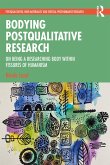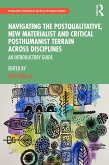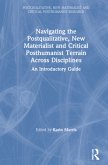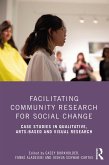Hydrofeminist Thinking with Oceans brings together authors who are thinking in, with and through the spaces of ocean/s and beaches in South African contexts to make alternative knowledges towards a justice-to-come and flourishing at a planetary level. Primary scholarly locations for this work include feminist new materialist and post-humanist thinking, and specifically locates itself within hydrofeminist thinking.
Together with a foreword by Astrida Neimanis, the chapters in this book explore both land and water with oceans as powerfully political spaces, globally and locally entangled in the violences of settler colonialism, land dispossession, slavery, transnational labour exploitation, extractivism and omnicides. South Africa is a productive space to engage in such scholarship. While there is a growing body of literature that works within and across disciplines on the sea and bodies of water to think critically about the damages of centuries of colonisation and continued extractivist capitalism, there remains little work that explores this burgeoning thinking in global Southern, and more particularly South African contexts. South African histories of colonisation, slavery and more recently apartheid, which are saturated in the oceans, are only recently being explored through oceanic logics. This volume offers valuable Southern contributions and rich situated narratives to such hydrofeminist thinking. It also brings diverse and more marginal knowledges to bear on the project of generating imaginative alternatives to hegemonic colonial and patriarchal logics in the academy and elsewhere. While primarily located in a South African context, the volume speaks well to globalised concerns for justice and environmental challenges both in human societies and in relation to other species and planetary crises.
The chapters, which will be of interest to scholars, activists and other civil society stakeholders, share inspiring, rich examples of diverse scholarship, activism and art in these contexts, extending international scholarship that thinks in/on/with ocean/s, littoral zones and bodies of water. The book offers ethico-political perspectives on the role of research in ocean governance, policy development and collective decision-making for ecological justice. This book is suitable for students and scholars of post-qualitative, feminist, new materialist, embodied, arts-based and hydrofeminist methods in education, environmental humanities and the social sciences.
Together with a foreword by Astrida Neimanis, the chapters in this book explore both land and water with oceans as powerfully political spaces, globally and locally entangled in the violences of settler colonialism, land dispossession, slavery, transnational labour exploitation, extractivism and omnicides. South Africa is a productive space to engage in such scholarship. While there is a growing body of literature that works within and across disciplines on the sea and bodies of water to think critically about the damages of centuries of colonisation and continued extractivist capitalism, there remains little work that explores this burgeoning thinking in global Southern, and more particularly South African contexts. South African histories of colonisation, slavery and more recently apartheid, which are saturated in the oceans, are only recently being explored through oceanic logics. This volume offers valuable Southern contributions and rich situated narratives to such hydrofeminist thinking. It also brings diverse and more marginal knowledges to bear on the project of generating imaginative alternatives to hegemonic colonial and patriarchal logics in the academy and elsewhere. While primarily located in a South African context, the volume speaks well to globalised concerns for justice and environmental challenges both in human societies and in relation to other species and planetary crises.
The chapters, which will be of interest to scholars, activists and other civil society stakeholders, share inspiring, rich examples of diverse scholarship, activism and art in these contexts, extending international scholarship that thinks in/on/with ocean/s, littoral zones and bodies of water. The book offers ethico-political perspectives on the role of research in ocean governance, policy development and collective decision-making for ecological justice. This book is suitable for students and scholars of post-qualitative, feminist, new materialist, embodied, arts-based and hydrofeminist methods in education, environmental humanities and the social sciences.
"As the seas rise, watery thinking is coming into view. This experimental collection of essays and provocations brings together many ways of thinking and being with oceanic environments. Through distinctive contributions enabled by South Africa's historical, political, and physical conditions, these authors advance innovative practices, eco-theories, and visions for social and environmental justice." -- Steve Mentz, St. John's University, USA; Author of An Introduction to the Blue Humanities (Routledge, 2023)
"This exciting multi-disciplinary text is at the forefront of new thinking on blue environmental justice. Immersed in the under-explored bathymetric setting of South Africa, the book draws from a depth of activist voices, perspectives and knowledges that caution us on how important past, present and future blue care is for all communities that live by, on, in and under the water." -- Ronan Foley, Associate Professor, University of Maynooth, Ireland
"This rich, transdisciplinary, and beautifully composed edited collection offers readers spaces for critical and ethical scholarship, promoting hopefulness for a justice to come. Hydrofeminist thinking is creatively shaped by storytelling inspired by art, literature, and activism, such as memories, poetry, photography, theatre, and swimming, writing, walking, and conversation. The multiplicity of local stories of Ocean/s and beaches in the South African geopolitical context in this book inspired me to slow and diffractive reading to read and read again, see, and see again, listen, and listen again, from different and entangled stories, wordings, and images. There is much to learn for international readers from this edited collection about how we become locally situated watery selves and the political and scholarly possibilities of hydrofeminist thinking for pedagogical creativity and environmental justice." -- Mona B. Livholts, Professor of Social Work, University of Helsinki, Finland; Author of The Body Politics of Glocal Social Work. Essays on the Post-Anthropocentric Condition (Routledge 2023)
"This exciting multi-disciplinary text is at the forefront of new thinking on blue environmental justice. Immersed in the under-explored bathymetric setting of South Africa, the book draws from a depth of activist voices, perspectives and knowledges that caution us on how important past, present and future blue care is for all communities that live by, on, in and under the water." -- Ronan Foley, Associate Professor, University of Maynooth, Ireland
"This rich, transdisciplinary, and beautifully composed edited collection offers readers spaces for critical and ethical scholarship, promoting hopefulness for a justice to come. Hydrofeminist thinking is creatively shaped by storytelling inspired by art, literature, and activism, such as memories, poetry, photography, theatre, and swimming, writing, walking, and conversation. The multiplicity of local stories of Ocean/s and beaches in the South African geopolitical context in this book inspired me to slow and diffractive reading to read and read again, see, and see again, listen, and listen again, from different and entangled stories, wordings, and images. There is much to learn for international readers from this edited collection about how we become locally situated watery selves and the political and scholarly possibilities of hydrofeminist thinking for pedagogical creativity and environmental justice." -- Mona B. Livholts, Professor of Social Work, University of Helsinki, Finland; Author of The Body Politics of Glocal Social Work. Essays on the Post-Anthropocentric Condition (Routledge 2023)








